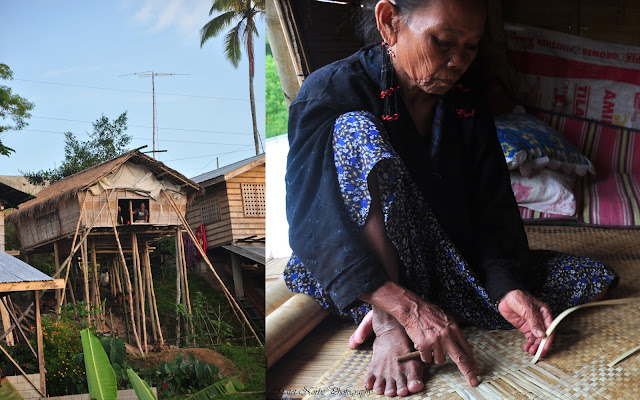The rays of the morning sun crept slowly from the mountaintop and covered the lake with golden light. As the mist vanished, water lily blooms opened leisurely to drink in the sun's radiance. Only the sound of frogs croaking, birds chirping and fish surfacing from the water greeted me as I watched life unfolds in the mystical and historical Lake Sebu.
Nestled within the Allah valley of South Cotabato, Lake Sebu is the heart of the ancestral domain of the T'boli and Ubo. Though a number of tourist resorts flocked its banks, it continuously fosters a culture and tradition that the people of the lake struggle to preserve nowadays.
The best way to experience that culture and tradition is to explore the place and get to know its people. A short distance from the Mountain Lake Eco Resort where my colleagues and I were housed in was a village of T'boli living through farming in the hills and fishing in the lake. That magnificent morning, I laced up my running shoes, strapped on my camera and followed the trail towards the village.
The best way to experience that culture and tradition is to explore the place and get to know its people. A short distance from the Mountain Lake Eco Resort where my colleagues and I were housed in was a village of T'boli living through farming in the hills and fishing in the lake. That magnificent morning, I laced up my running shoes, strapped on my camera and followed the trail towards the village.
However, the I found it still sleeping so I decided to take a run beyond and to fill my lungs with the fresh mountain air. It was a beautiful trail with forest growth and corn fields in either side of the mountain. The lake was seen below and the blue mountains from afar. It was a lonely road with no cars or motorcycles passing by that hour in the morning, thus it was indeed ideal for people like me who prefers the tranquility of nature.
On the trail, I met some farmers on their way to the fields with their warm greetings of "Maayong aga!" or good morning. I also happen to meet some T'boli children on their way to school which was obvious from their backpacks. Their shy glances and gentle smiles encouraged me to befriend them and soon enough they were posing for the camera and giggling at the sight of their photos. It was a wonderful experience and it was also a sign that the once sleeping village was stirring to life so I turned around and went back.
The smoke billowed from the kitchens of the houses and the fragrant smell of coffee and breakfast welcomed me to the village. I was about to make my presence known when a woman's voice from inside one of the houses shouted,"Dayon!" telling me to come inside her house.
I quickly removed my shoes and socks and climbed up the stairs of the traditional gono (house) of the T'boli. It was made of bamboo walls and floors and was built on stilts six feet from the river bank. Inside it was minimal space with wide shelves on all four sides that could serve as beds, lounge, tables and other possible uses. There was only one big window that opened to the view of the lake and our resort. The owner of the gono was very accommodating despite the chaos of the household full of little children. In all the goings-on, she introduced me to her mother who was weaving a mat near the big window.
She could not speak any other dialect aside from her native tongue so I contented myself with watching her work. While she was weaving, she tried talking to me and somehow I heard the word monom and suddenly I got even more interested. It so happened that monom is a familiar word to me since I heard it mentioned and even saw it being done several times by the Teduray and the Lambangian of Maguindanao. Knowing that these tribes who are miles away from each other share a similar weaving tradition or monom was another stone in the pile of knowledge on the traditional kinship between and among the indigenous groups of Mindanao.
It was an amazing learning experience indeed and as I left the gono saying my thanks and my farewells, I wondered how many people like me had braved that extra mile to reach out and get to know other people's culture and tradition and eventually strip themselves of their discrimination and biases.
Little did I know that I would find the answer to my question in the caption of a photograph of a gono hanging on the wall of our resort later that day. It said that the gono traditionally had a rolled-up ladder to keep intruders (i.e strangers like me) out. The warm welcome that the T'boli household gave me only showed the great capacity of humans to interact, accept and learn from each other.
Tey bong nawa hu kuy, Lake Sebu! Thank you!
.JPG)
.JPG)

.JPG)
.JPG)

.JPG)
No comments:
Post a Comment